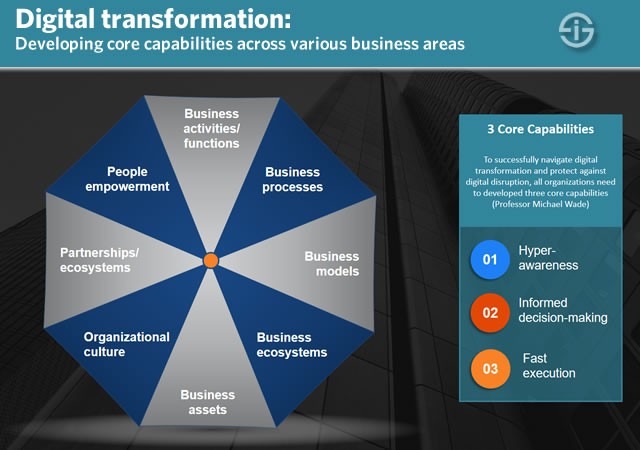In the rapidly evolving landscape of modern business, the digital transformation has emerged not merely as a trend but as a necessity for sustainable growth. This paradigm shift is more than just upgrading to the latest technology; it’s about reimagining business models, customer interactions, and operational processes to leverage the power of digitalization. By embracing digital transformation, businesses can unlock new opportunities, foster innovation, and stay ahead of the competition.

One of the most profound impacts of digital transformation lies in its ability to enhance customer engagement. Traditional businesses often rely on passive marketing strategies and limited customer interaction channels. However, in the digital era, businesses can utilize advanced analytics, social media, and personalized content to create dynamic, two-way conversations with their customers. By understanding customer behavior, preferences, and feedback in real-time, businesses can tailor their products, services, and marketing efforts to better meet customer needs, leading to higher satisfaction and loyalty.
Moreover, digital transformation facilitates a more agile and efficient operational framework. Cloud computing, automation, and artificial intelligence (AI) enable businesses to streamline processes, reduce costs, and scale operations more effectively. For instance, AI-driven chatbots can handle customer inquiries round-the-clock, freeing up human agents to address more complex issues. Similarly, automation tools can optimize supply chains, reducing lead times and minimizing waste. These technological advancements not only improve productivity but also enhance decision-making through data-driven insights.
Another critical aspect of digital transformation is its role in fostering innovation. By adopting open innovation practices and collaborating with startups, research institutions, and other industry players, businesses can tap into a wealth of new ideas and technologies. This collaborative approach accelerates product development cycles, encourages experimentation, and fosters a culture of continuous learning and improvement. In a world where change is the only constant, businesses that prioritize innovation are better positioned to adapt and thrive.
Yet, the journey to digital transformation is not without its challenges. Businesses must navigate issues such as cybersecurity, data privacy, and the need for ongoing employee training. It requires a strategic approach, clear vision, and commitment from leadership. Successful digital transformation hinges on fostering a culture that embraces change, encourages experimentation, and values the input of all stakeholders.
In conclusion, digital transformation is not an optional extra for businesses today; it’s a fundamental requirement for sustainable growth. By leveraging digital technologies to enhance customer engagement, streamline operations, and foster innovation, businesses can unlock new potential, stay competitive, and create lasting value in an increasingly interconnected world. As the pace of technological advancement continues to accelerate, those who embrace digital transformation will be the ones who lead the way in shaping the future of business.















